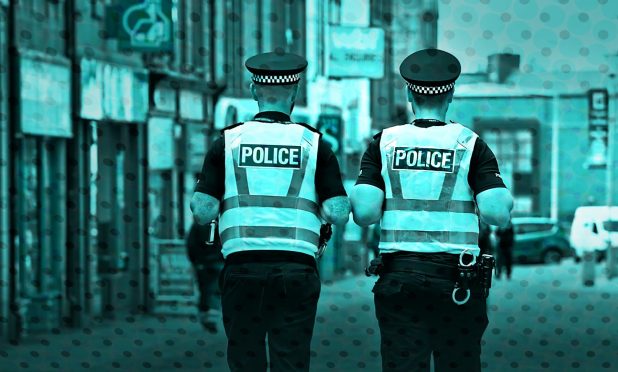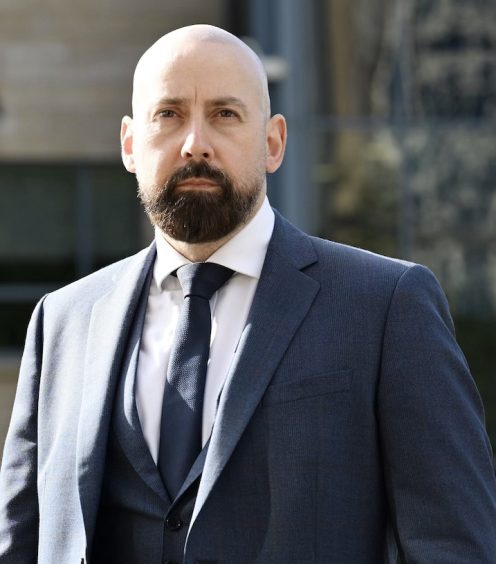
The introduction of the controversial Hate Crime Bill is facing further delays after Police Scotland revealed that it has no plans to set up a dedicated unit to implement the new law – and will instead rely on online training for its officers.
The Hate Crime and Public Order (Scotland) Act was given Royal Assent in April 2021, but it was delayed because Police Scotland asked for time to undergo training and guidance planning.
The Bill attracted criticism from faith groups, artists and lawyers as an attack on free speech which could lead to people being prosecuted for comments made in their own homes.
The new legislation creates a criminal offence of stirring up hatred against protected groups, as well as prejudice on race, age, disability, religion, sexual orientation, transgender identity or variations in sex characteristics.
In September, the First Minister said the hate crime legislation will be implemented “in early 2024”.
But it now appears unlikely that timetable can be met.
Hate crime unit
Police Scotland was advised to set up a specialist hate crime unit amid concerns about officers enforcing the complex new law. But it will rely on online training for its 16,400 officers, starting this month – prompting the Scottish Police Federation to warn that this could take up to 12 months to complete.
Police Scotland said it had “never confirmed it will set up a dedicated hate crime unit”.
It added: “It was recommended that we consider creating one in the HMICs Assurance Review of Hate Crime.”
The force said the training package “has not yet been rolled out internally across the service” adding it was “unable to confirm the launch date”.
Last week, Police Scotland’s new chief constable, Jo Farrell, requested an extra £128 million to recruit a further 1,100 officers over the next two years.
David Kennedy, General Secretary of the Scottish Police Federation, warned: “The Hate Crime laws in particular are extremely complex because of the new areas they cover, but Police Scotland intend training officers online.
“That is simply unacceptable because there is no facility to be able to ask questions.
“We fear this is going to lead to people who shouldn’t be ending up in court, and those who should be ending up in court not doing so.
“The whole thing is going to take at least another year to train officers, and if they insist on doing it all online, it will end in chaos.”
The Federation says officers are already struggling to cope with the crimes they have to investigate but are ending up on the frontline of new laws on fireworks and even Airbnb properties.
Kennedy said: “The government are churning out new laws in good faith, but without thinking about the end result for officers who have to add things like checking if someone is running an Airbnb to their list of duties.”
Scottish Conservative justice spokesman Russell Findlay said: “The people of Scotland rightly expect police officers to be fighting crime in the community, not criminalising what is said over the dinner table.
“Just this week, the Chief Constable was forced to hold out a begging bowl and issue a stark warning about the devastating impact of SNP cuts on policing – so this latest delay comes as no surprise.
“Humza Yousaf’s dangerous law puts policing under even greater financial pressure and endangers the vital right to free speech in Scotland.”
Expert concerns
Criminology experts are deeply concerned that the new laws will further anger women concerned with getting a criminal record over a difference of belief on sex and gender.
Crime and policy expert Dr Kath Murray of high-profile research think-tank Murray Blackburn Mackenzie said: “We remain concerned about the lack of clarity as to what could constitute stirring up hatred in relation to transgender identity.”
Murray said it was of concern that “frontline responsibility for this flawed and opaque legislation now lies with Police Scotland”.
She said: “Training for most officers is to be limited to an online package.”
Assistant Chief Constable David Duncan said: “Police Scotland is working hard to ensure we are prepared for implementation of the new legislation and training for officers is set to begin in December.
“Our training package has been developed in close consultation with diversity staff associations to ensure all protected characteristics under the new Act are clearly represented and articulated, and that officers are best prepared when they respond to hate crimes and incidents.
“We want everyone targeted by hate crime, or those who witness hate crime, to have confidence to come forward.
“They can be assured they will be treated with respect and dignity, and that the circumstances they report will be fully investigated.”

Enjoy the convenience of having The Sunday Post delivered as a digital ePaper straight to your smartphone, tablet or computer.
Subscribe for only £5.49 a month and enjoy all the benefits of the printed paper as a digital replica.
Subscribe